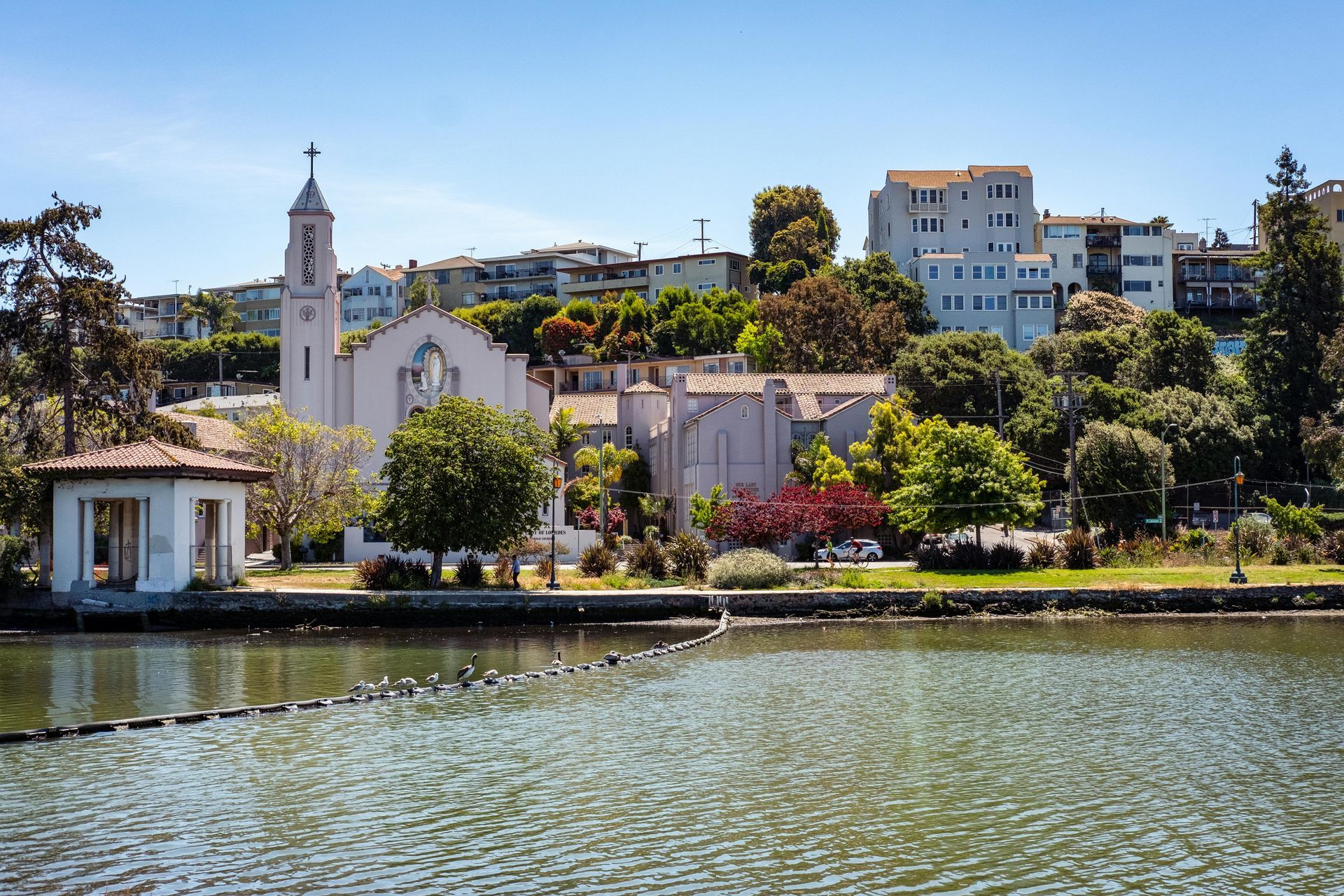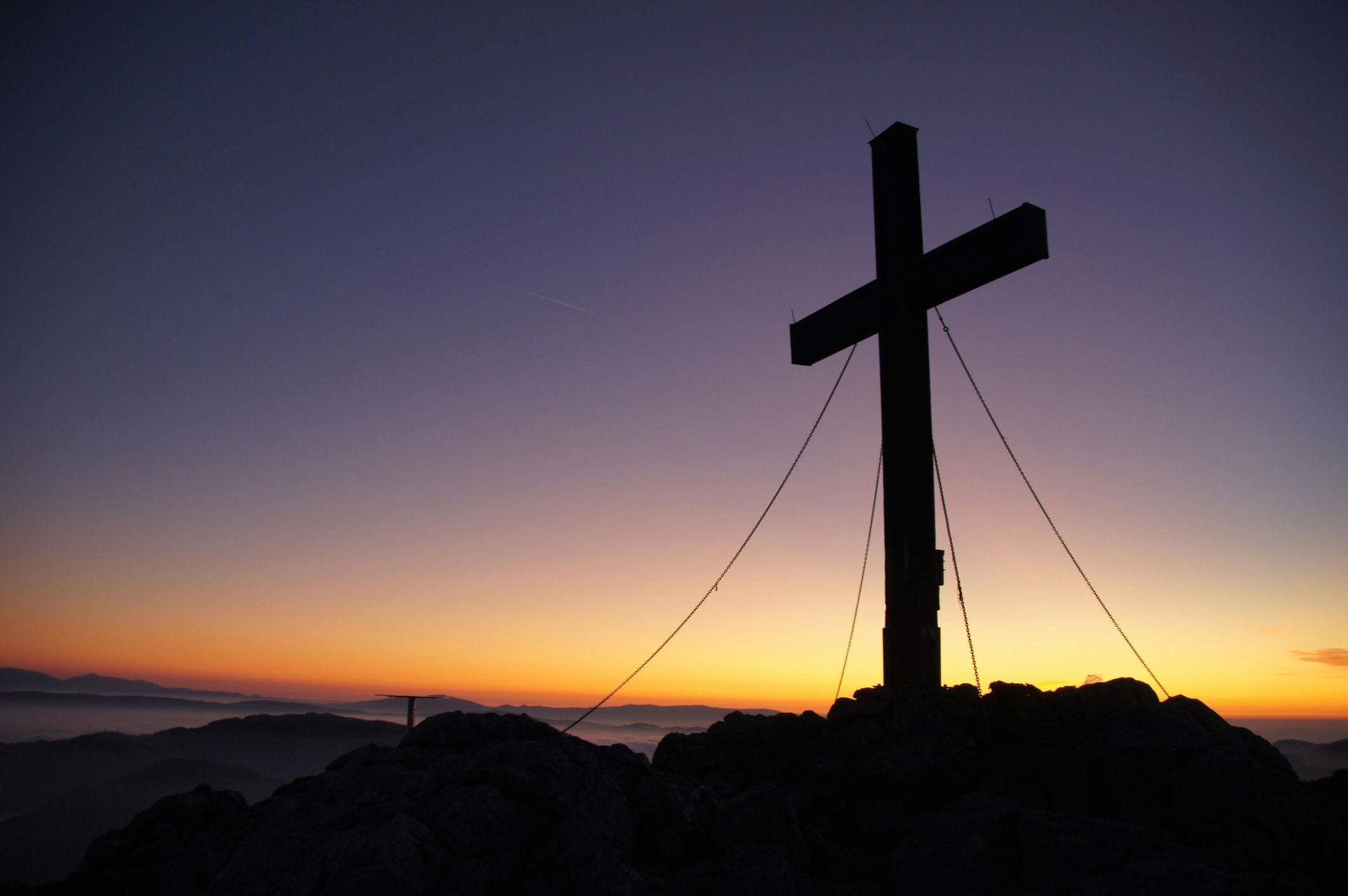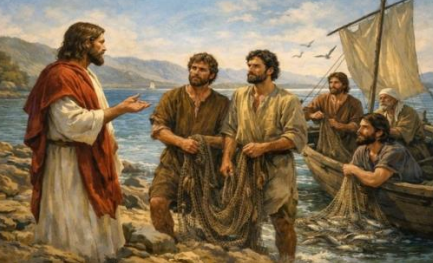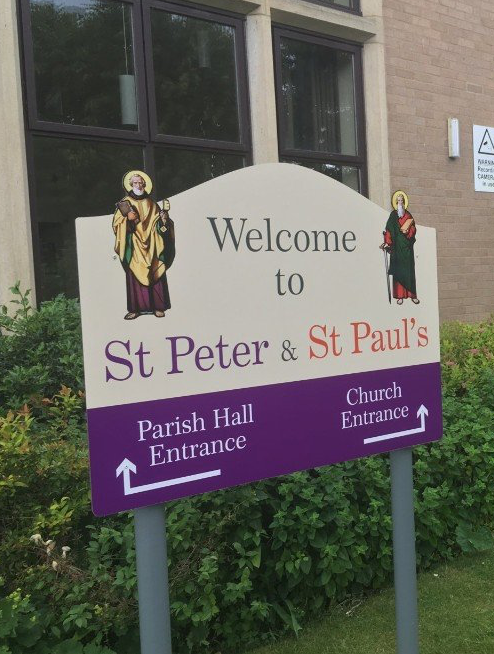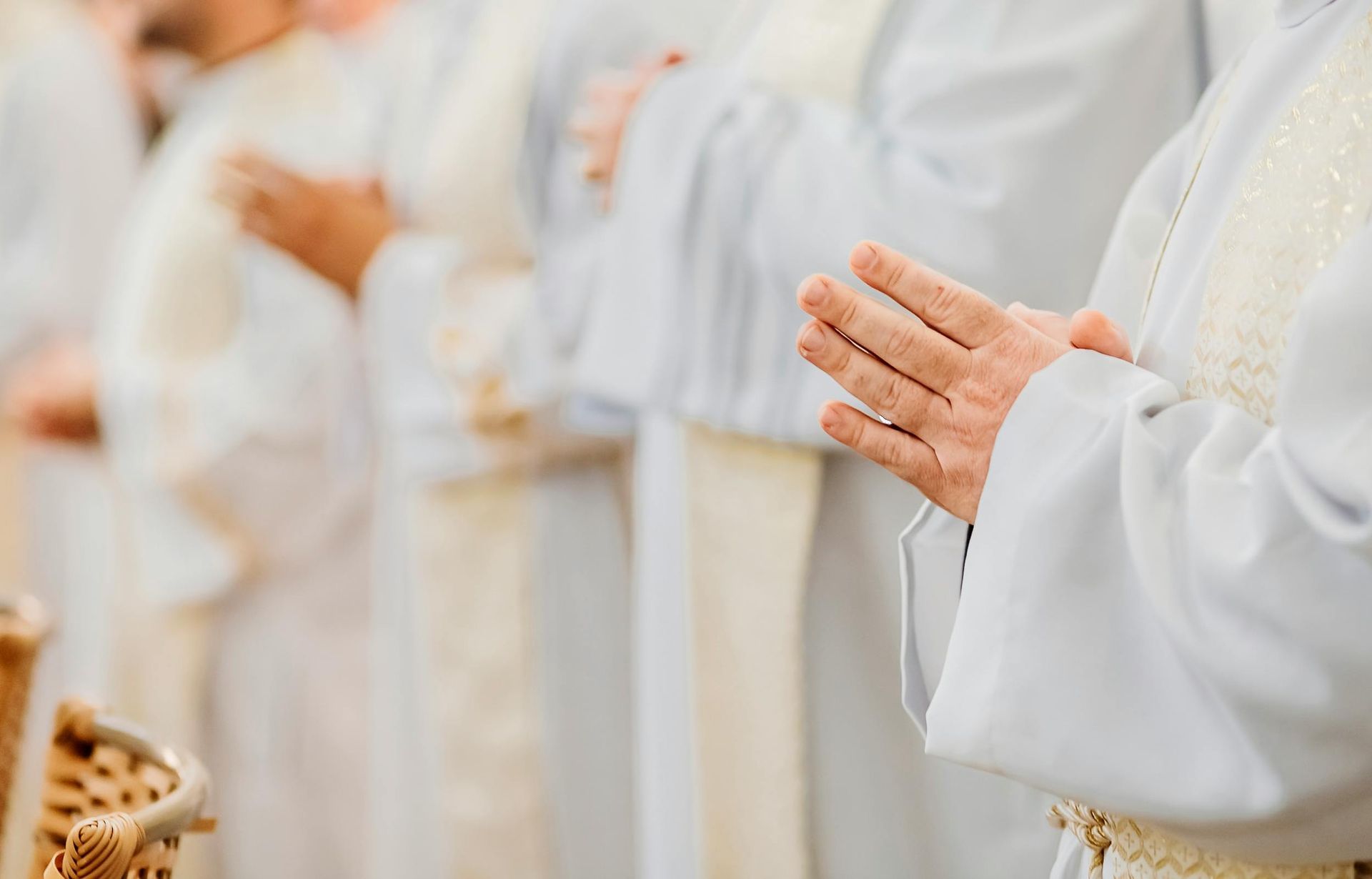This week we start the gospel of Mark which will accompany us through the coming liturgical year.
The Gospel Of Mark
The “gospel of Jesus Christ, the Son of God” (Mark 1:1)
Each gospel account gives us a portrait of Jesus, his mission and teaching. Each is different in style, length, and emphasis. But they all have a common thread and purpose — the proclamation of the good news of Jesus Christ.
Among the four gospels, Mark’s account is unique in many ways. It is the shortest account and seems to be the earliest. Both Luke and Matthew use much of Mark’s text. Luke’s account contains over half of the verses in Mark’s account (some 350 verses out of a total 660 verses in Mark). Unlike Luke and Matthew who begin their accounts with the events surrounding the birth of the Messiah, Mark begins his account with Jesus’ public ministry and the mission of John the Baptist. Mark leaves no doubt as to who Jesus was. In the very first sentence of his account he proclaims that Jesus is the “Christ, the Son of God” (Mark 1:1). Jesus was not simply a man among men, but one who caused great wonder, amazement, and awe upon those who encountered him. “They were astonished at his teaching” (Mk 1:22); “they were all amazed” (Mk 1:27); “they were utterly astounded” (Mk 6:51); “the disciples were amazed at his words” (Mk 10:24), etc.
Mark displays both Jesus’ divinity and his humanity. For example, Mark tells us that Jesus is “the carpenter” (Mk 6:3). Matthew softens it a bit by saying that Jesus is the “carpenter’s son” (Matt. 13:55). Mark even tells us about Jesus’ emotions. Jesus was moved with “compassion” (Mk 6:34); he “sighed” (Mk 7:34; 8:12); he “marvelled” at the unbelief of his own townsfolk (Mk 6:6); he “looked” upon the rich young man and “loved him” (Mk 10:21). Mark also adds vivid details that the other gospel writers leave out. For example, he describes Jesus’ tenderness as he took the little children “in his arms and blessed them, laying his hands upon them” (Mk 10:16). On another occasion Mark describes Jesus “asleep on a cushion” in the stern of the boat as the apostles feared for their lives when caught in the storm at sea (Mk 4:38).
Mark’s gospel was most likely intended to be read aloud in the Christian assembly, rather than privately. It was composed for the ear more than the eye, especially with its use of constant repetitions, summaries, recapitulations and variations on a theme. The word “again” is used no less than 26 times which serves to remind the hears of the previous occasion when something occurred. Mark’s gospel is more direct in language, even blunt at times. For example, Mark tells us that Jesus’ relatives “went to seize him, for people were saying, ‘He is beside himself'” (Mk 3:21). Mark portrays Jesus in action and urgent action at that. In the first chapter alone we can sense the urgency and immediacy of Jesus’ work and mission. Mark uses the word “immediately” no less than eight times. For example, he says the “Spirit immediately drove him out into the wilderness” (Mark 1:12). “And immediately he called them” (Mk 1:20); “and immediately on the Sabbath he entered the synagogue and taught” (Mk 1:21); “and immediately the leprosy left him” (Mk 1:42).
Mark the Evangelist
Mark the Evangelist is mentioned some eight times in the New Testament. He is the cousin of Barnabas (Col. 4:10). When the Apostle Paul writes his letter to the Colossians from his prison in Rome, he mentions that Mark is there with him (Col. 4:10). He also mentions in his letter to Philemon that Mark is one of his fellow workers (Philemon 24). Peter addressed him as “my son Mark” (1 Peter 5:13). It is very likely that Peter was the one who brought Mark to conversion and raised him up in the faith. Mark was an associate of Peter and likely wrote his gospel in Rome where Peter was based. Mark wrote it in Greek. It was likely written for Gentile readers in general, and for the Christians at Rome in particular. The gospel is usually dated between 65 and 75 AD, sometime shortly after Peter’s martyrdom in Rome in 64 AD
The earliest church father, after the Apostles, to write about Mark was Papias (c. 60-130), the bishop of Hieropolis in Phyrgia. “Mark, having become the interpreter of Peter, wrote down accurately, though not indeed in order, whatever he remembered of the things said or done by Christ. For he neither heard the Lord nor accompanied him, but afterward, as I said, he was in company with Peter, who used to offer teaching as necessity demanded, but with no intention of giving a connected account of the Lord’s discourses. So Mark committed no error in thus writing some single points as he remembered them. For upon one thing he fixed his attention: to leave out nothing of what he had heard and to make no false statements in them.” (Fragments of Papias, from Eusebius CH 3.39)
Clement (88-97 AD), another early church father, writes concerning this gospel: “As Peter had preached the Word publicly at Rome, and declared the Gospel by the Spirit, many who were present requested that Mark, who had followed him for a long time and remembered well what he had said, should write them out. And having composed the Gospel he gave it to those who had requested it. When Peter learned of this, he neither directly hindered nor encouraged it.” (Fragments of Clement, Eusebius CH 6.14.5-7)
It is significant that Mark, as well as Luke, was chosen by the Holy Spirit to write the gospel account. Augustine of Hippo, explains: “The Holy Spirit willed to choose for the writing of the Gospel two [Mark and Luke] who were not even from those who made up the Twelve, so that it might not be thought that the grace of evangelization had come only to the apostles and that in them the fountain of grace had dried up” (Sermon 239.1).
The ceaseless activity and urgency of Jesus’ mission
Mark stresses Jesus as “Teacher” and as the “Servant of God”. Jesus is regularly addressed as “Teacher” by his disciples (Mk 4:38)and by those who seek his help (Mk 5:35). He also uses the Hebrew form of teacher, “Rabbi” (Mk 9:5). Ironically Mark gives little of Jesus’ teaching compared with Luke and Matthew. Mark mainly stresses what Jesus did. He depicts Jesus’ ceaseless activity and his power over sickness, disease, death, and the work of evil spirits.
One technique Mark frequently uses is to “sandwich” a point or story which serves as a “filling” between two pieces of “bread”. For example, Jesus’ cleansing of the Temple is “sandwiched” between two incidences with Jesus cursing a barren fig tree (see Mark 11:12-20). The story on the inside gives light to the events surrounding it by way of comparison, contrast, or commentary. For other examples, see Mark 3:22-30; 5:21-43; 6:6-30; 14:1-11; 14:54-72.
Mark also forms groups of three, often for emphasis. Mark gives three boat scenes with the disciples (Mk 4:35, 6:45, 8:14); three predictions of the passion, three commands to “keep awake and watch” ((8:31; 9:31; 10:32-34) matched by the three times the tired disciples are mentioned as sleeping. Peter denies Jesus three times; Pilate asks the crowd three questions; and there are three time references at the crucifixion (the third, sixth, and ninth hours mentioned in Mark 15). This seems to be a deliberate pattern of Mark to give emphasis and urgency to Jesus’ task and mission.
“Good news” for today!
The word “gospel” literally means “good news”. The gospel is the good news of Jesus Christ and the freedom he has won for us through his death and resurrection. The gospel is God’s word for us today! It’s is a living word that has power to change, transform, and bring freedom and healing to those who accept it as the word of God. Are you hungry for God’s word? And do you receive it with expectant faith and trust?
“Lord Jesus, you are the fulfilment of all our hopes and desires. Your Spirit brings us grace, truth, life, and freedom. Fill me with the joy of the gospel and inflame my heart with love and zeal for you and for your kingdom”. http://www.rc.net/wcc/readings/markintr.htm
